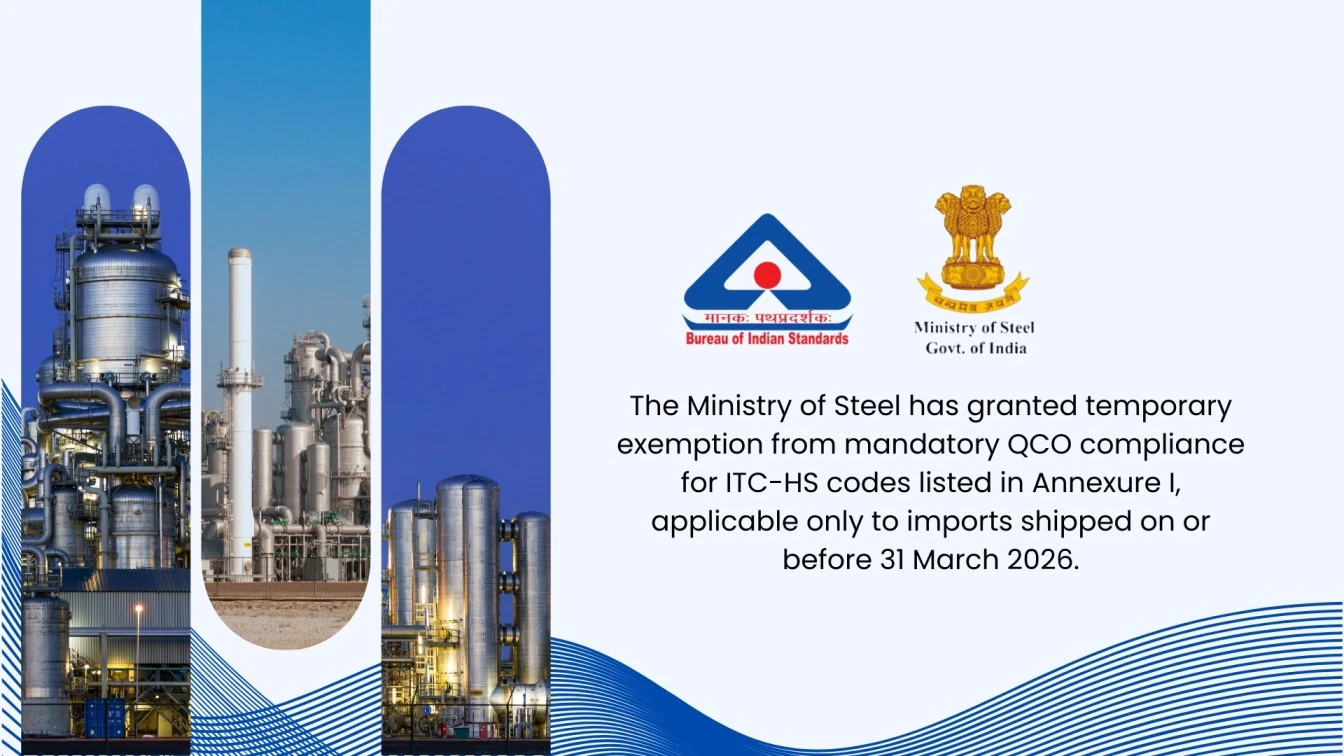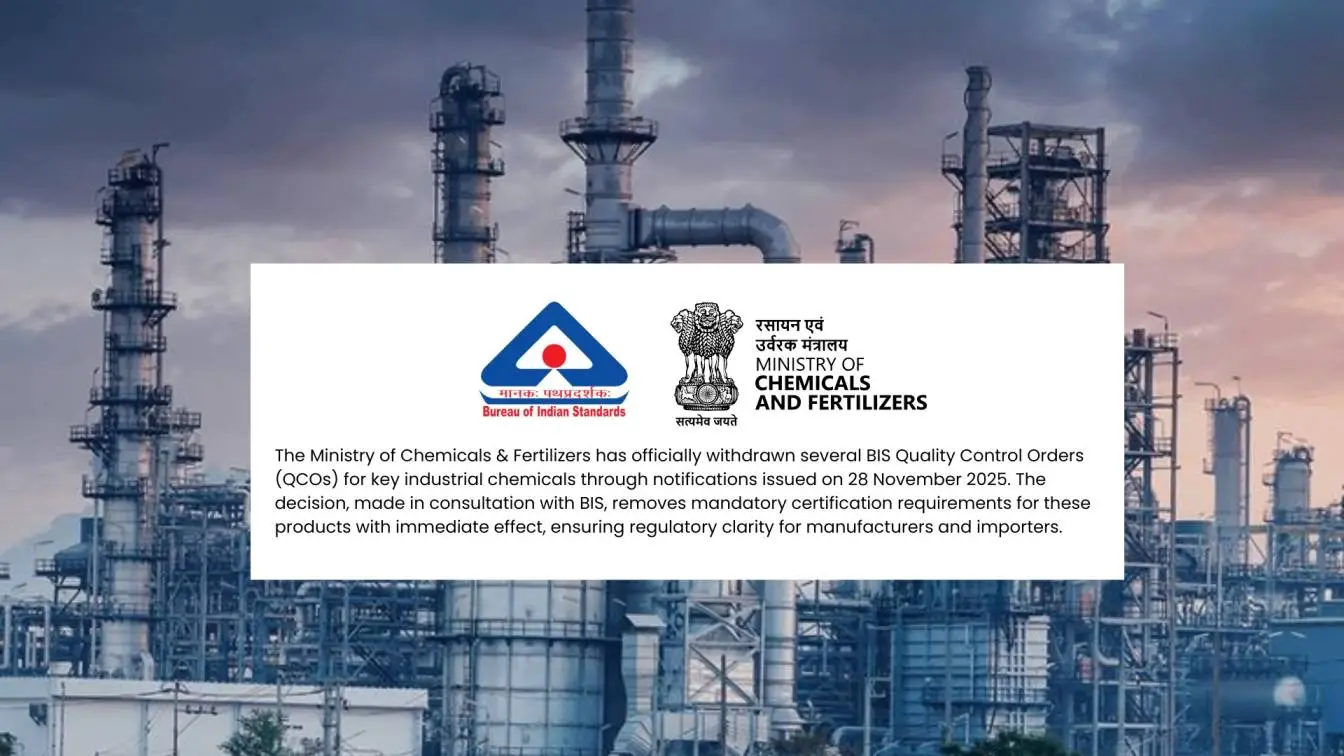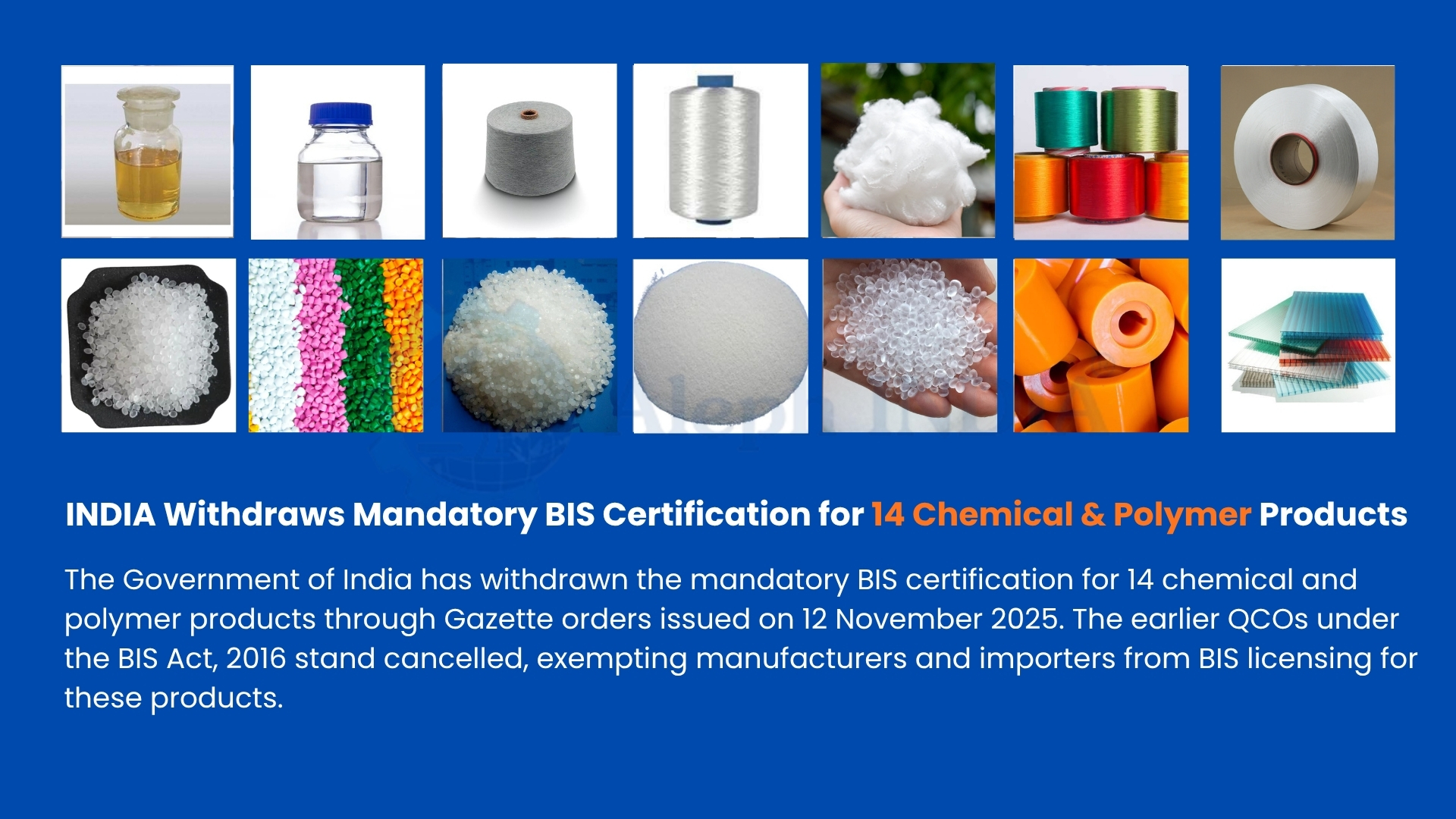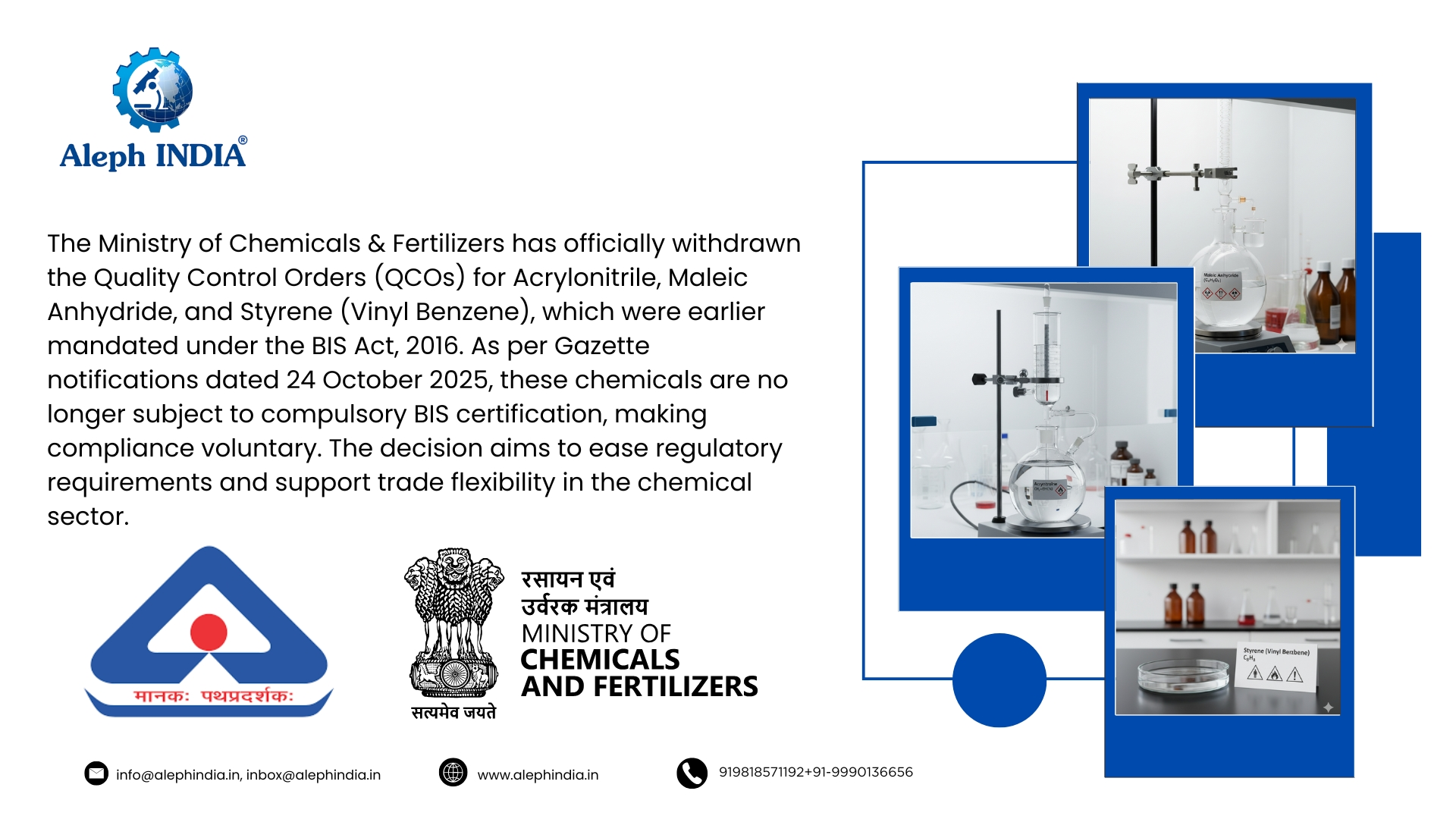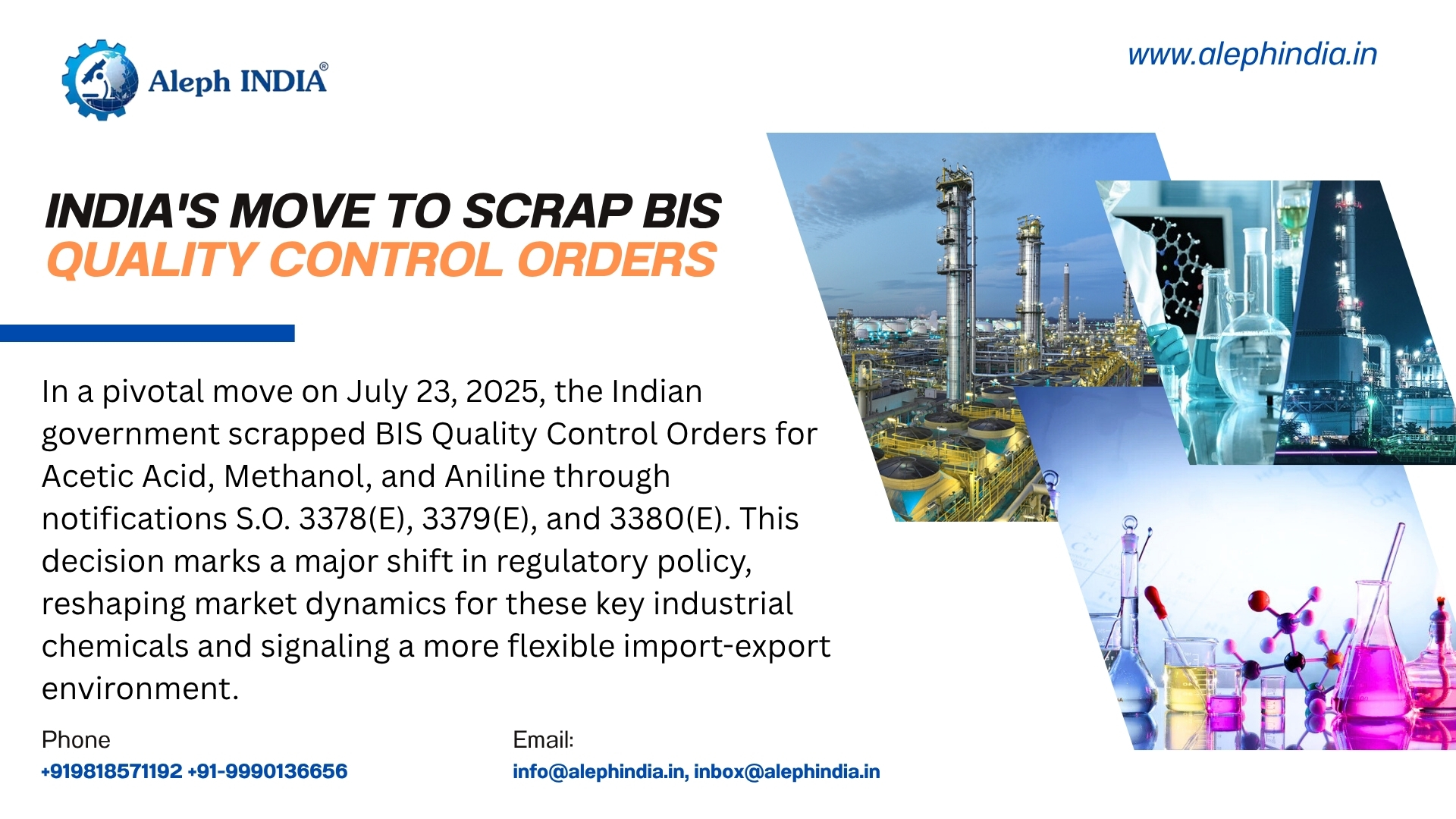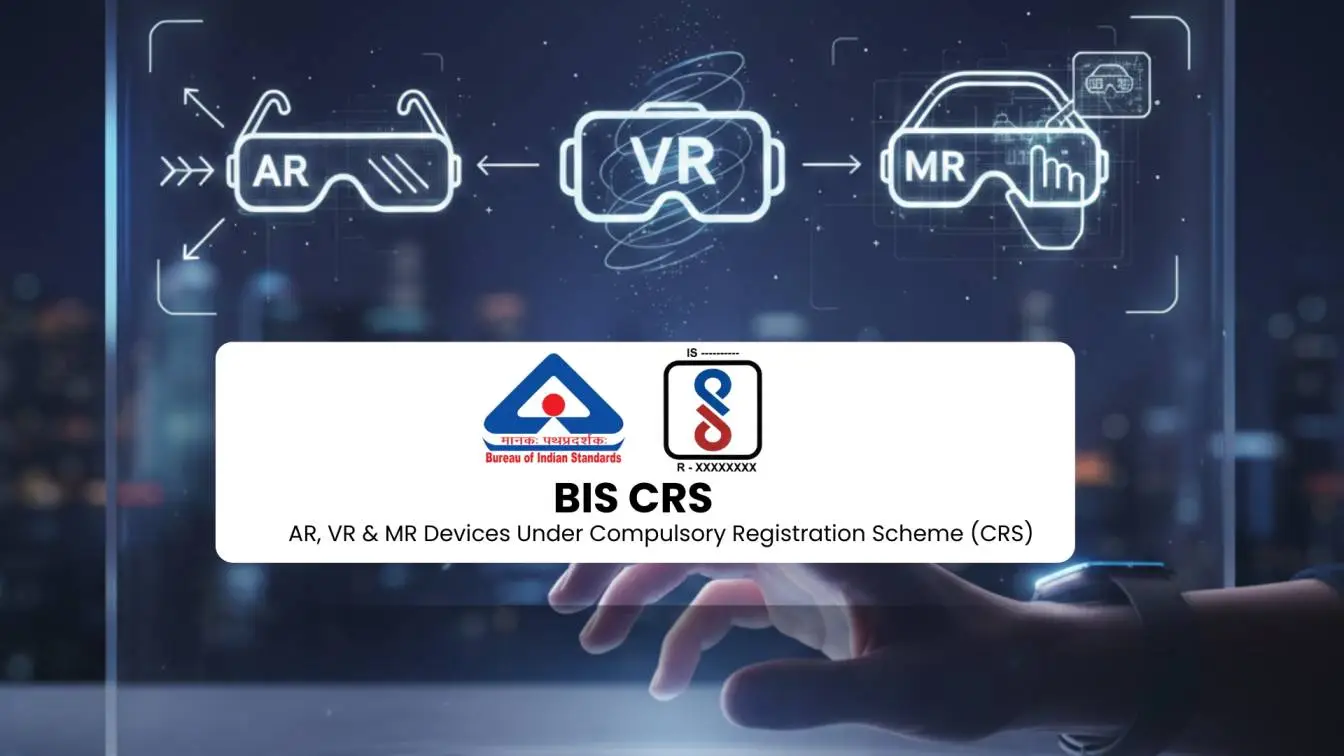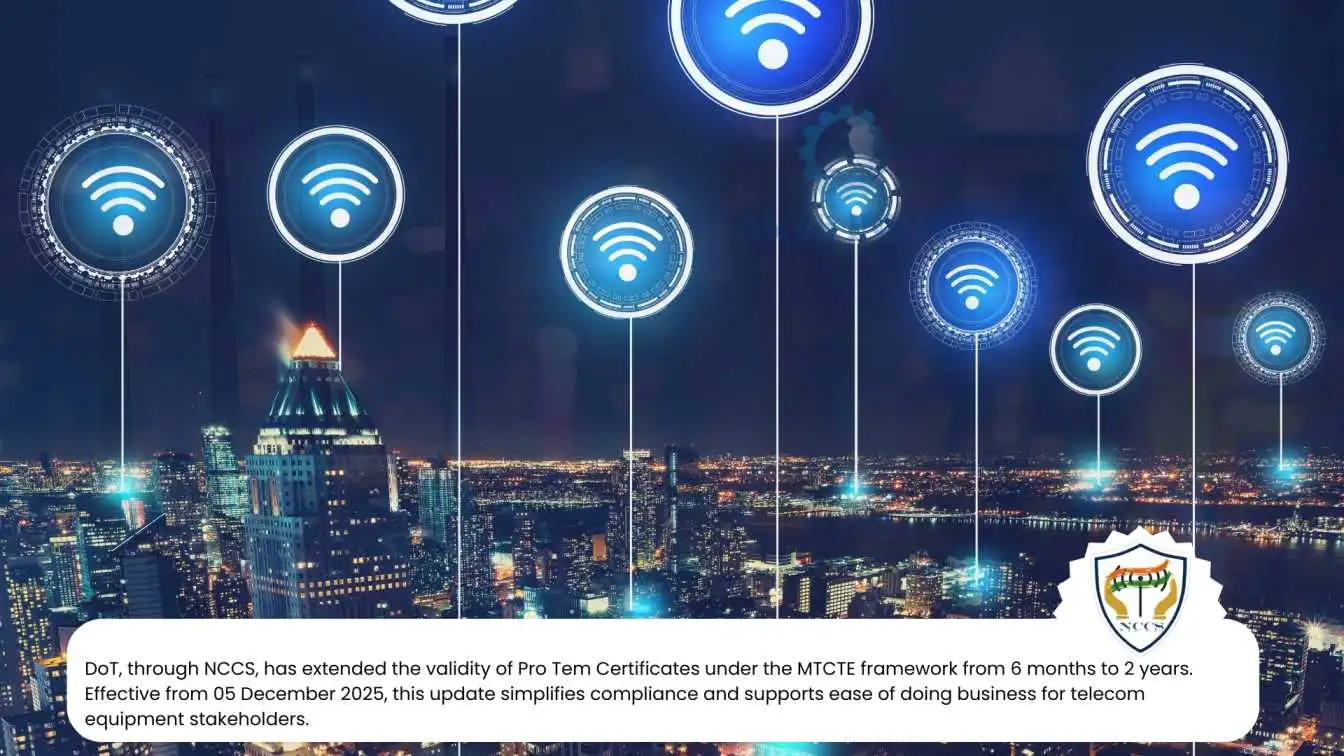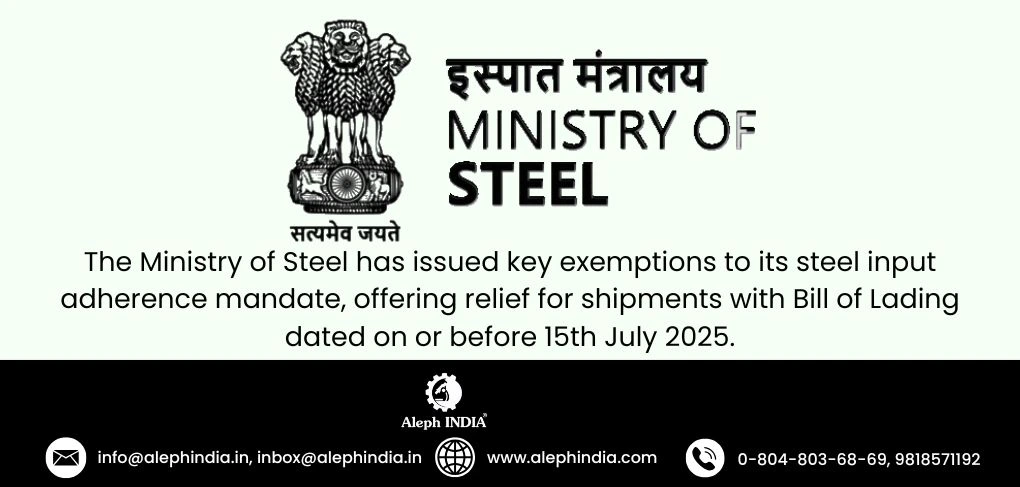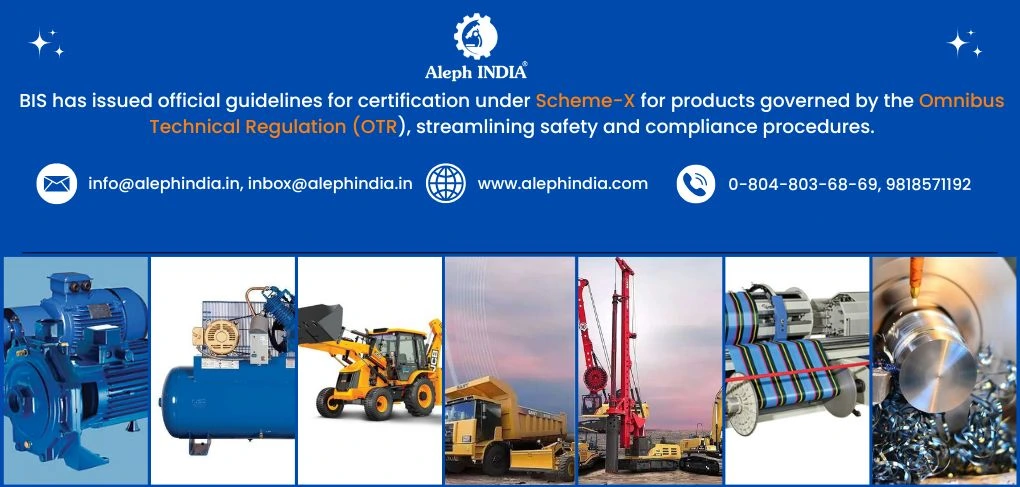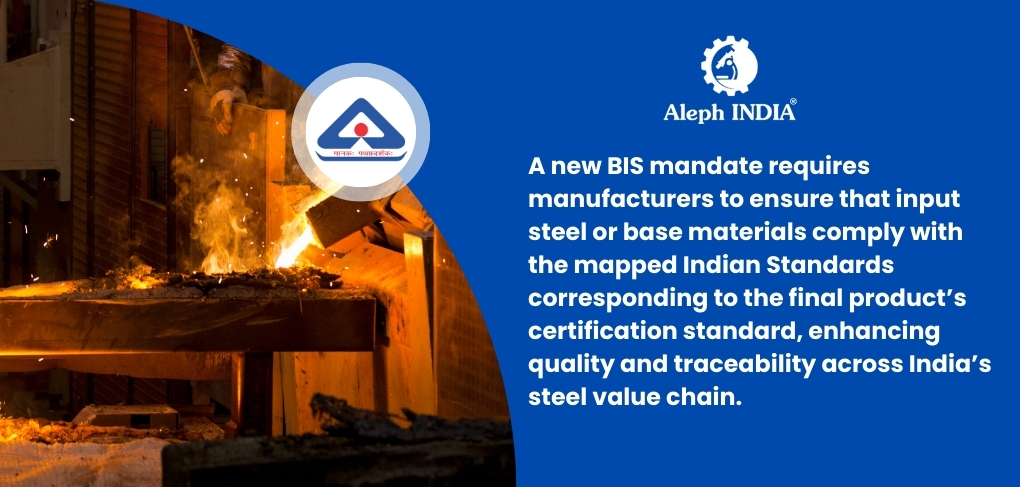- HOME
- ABOUT US
- SERVICES
-
LICENCE & CERTIFICATION
- BIS (ISI MARK) FOR FOREIGN MANUFACTURERS
- DOMESTIC PRODUCT CERTIFICATION (ISI MARK)
- BIS SCHEME X CERTIFICATION
- BIS CERTIFICATE OF CONFORMITY (CoC)
- BIS HALLMARKING
- REACH CERTIFICATION (GLOBAL)
- LABORATORY RECOGNITION SCHEME (LRS)
- WORLD MANUFACTURER IDENTIFIER (WMI) CODE
- ECO MARK
- TAC APPROVAL FOR AUTOMOBILE
- PESO CERTIFICATION
- SASO CERTIFICATION
- CDSCO CERTIFICATION
-
REGISTRATION
- BIS (CRS) REGISTRATION FOR ELECTRONIC PRODUCT
- WPC-ETA APPROVAL
- BEE CERTIFICATION
- E-WASTE MANAGEMENT (EPR)
- EPR REGISTRATION FOR PLASTIC WASTE MANAGEMENT
- EPR REGISTRATION FOR BATTERY WASTE MANAGEMENT
- EPR REGISTRATION FOR USED OIL
- LEGAL METROLOGY (LMPC)
- TEC/MTCTE APPROVAL
- CE CERTIFICATION
- UL CERTIFICATION
- ROHS LICENCE
- DRONE REGISTRATION
- MOEF LICENCE
-
AUXILIARY
- STANDARDIZATION (SCIENTIFIC) DIVISION
- TRAINING SERVICES (NATIONAL & INTERNATIONAL)
- IMPORT/EXPORT LICENCE
- FSSAI CERTIFICATION
- MSME/SSI/NSIC REGISTRATION
- ISO REGISTRATION
- BRAND REPRESENTATION
- LABORATORY EQUIPMENT AND SETUP
- TRADEMARK REGISTRATION
- MAKE IN INDIA SUPPORT
- AG-MARK LICENCE
- THIRD PARTY INSPECTION AND MONITORING SERVICES
-
- PORTFOLIO
- UPDATES
- CONTACT
- LOGIN
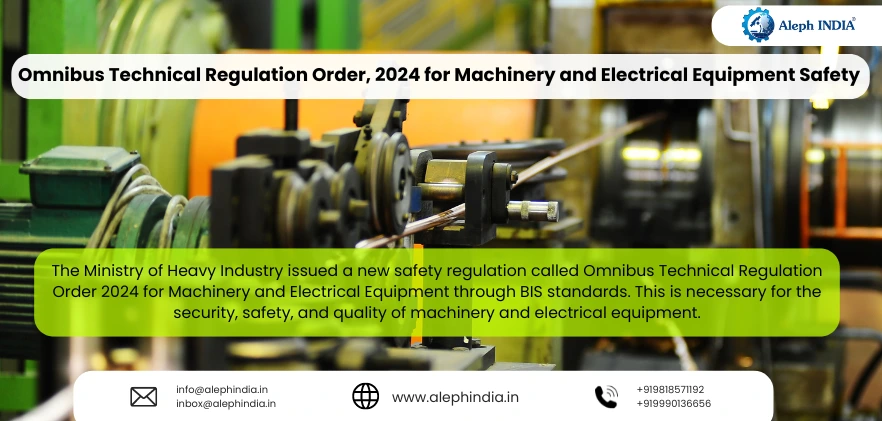
Omnibus Technical Regulation Order, 2024
The Government of India is developing mandatory safety standards for machinery to reduce the high social and economic cost of machinery-related accidents. This approach focuses on safe design, proper construction, and maintenance practices that will significantly reduce injuries and deaths.
The National Capital Goods Policy in India lists, among other things, the need to insist on standard safety norms within the country for environmental safety and minimum performance standards for machinery. A draft Quality Control Order on machinery safety has been prepared and put up for review and feedback from all concerned stakeholders.
The proposed QCO is recently accompanied by a guideline document on best practices and standards for Machinery and Electrical Equipment Safety. It will help industries identify relevant standards, risk assessment measures, and safety implementation protocols. This new regulation, the Machinery and Electrical Equipment Safety (Omnibus Technical Regulation) Order, 2024, issued by the Ministry of Heavy Industries, comes into force on August 28, 2024.
Important Provisions of Safety of Machinery (QCO)
- Compliance with set standards
- Obtaining the Machinery Safety Mark
- Appointment of a local representative
- Preparation for market surveillance
- Certification by notified bodies
- Compulsory marking and labeling
- Follow the penalties for non-compliance
Aleph India guides manufacturers to obtain the Machinery Safety Mark while explaining how to comply with the safety requirements of the Machinery and Electrical Equipment Safety (Omnibus Technical Regulation) Order, 2024. The consultancy also helps manufacturers select local representatives, prepare for risk assessments, and ensure correct marking and labeling. Manufacturers, thus, having complied with all the certifications and safety need not face penalties while ensuring the safety and performance of the products.
Frequently Asked Questions
The Omnibus Technical Regulation Order, 2024, establishes mandatory safety standards for machinery and electrical equipment in India, aiming to align local practices with international safety norms. It covers a range of products like pumps, compressors, and electrical machinery.
The regulation will come into effect on August 28, 2025, giving manufacturers and importers one year to comply with the new standards.
The regulation requires compliance with safety standards, including IS 16819:2018/ISO 12100:2010 and additional Type B and C standards. Type C standards will override others if discrepancies arise.
While the specific penalties are not detailed, non-compliance would likely result in the inability to sell or import affected products into the Indian market. Manufacturers and importers must obtain a BIS (Bureau of Indian Standards) license after meeting the conformity assessment requirements. The lack of certification could lead to significant business disruptions.
Review the applicable standards that apply to your product, which may be realized through acquiring their required certifications. Be sure they meet all labeling and safety requirements.


